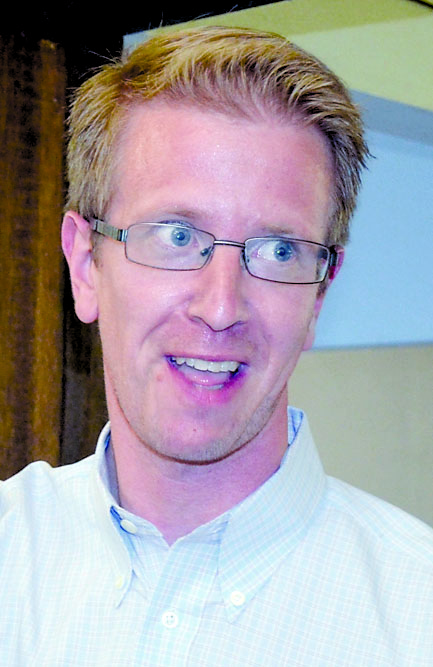PORT ANGELES — Olympic National Forest could potentially benefit from a collaborative approach to timber harvesting, the national forest’s supervisor said during a discussion panel on timber harvesting practices last week.
Olympic National Forest does, however, present a number of challenges unique to other such forests in the state, said Reta LaFord, Olympic National Forest supervisor for the U.S. Forest Service.
These challenges include the sensitive species, such as the spotted owl, that make their home in the federally managed area and the condition of forest service roads that snake through the wooded areas.
LaFord was joined by five other panel members, who were from the nature conservation field and the timber products industry, during a Friday discussion panel focusing on collaborative timber-harvesting agreements.
The panel was organized by U.S. Rep. Derek Kilmer, who represents the 6th Congressional District, which includes Clallam and Jefferson counties.
Kilmer, a Democrat from Gig Harbor who grew up in Port Angeles, led the panel in Port Angeles City Council chambers in front of a gathered crowd of about 35 area residents.
Kilmer made clear at the start of the panel that it was not designed to collect input from the audience, though he invited anyone present to send comments to Kilmer’s staff at Kilmer.Collaborative@mail.house.gov.
“I want to get your feedback on what you hear today,” Kilmer told the crowd.
Agreements
Collaborative harvest agreements often involve representatives of the U.S. Forest Service, nature conservancy groups and timber and wood-product companies working together to develop a strategy for harvesting timber in a given national forest that gives both ecological and economic benefits, LaFord explained.
“Management of the forests is not an either-or,” LaFord said, “but a combination using the best tools available.”
Kilmer said he organized the panel to gather information from experts on how such collaborative agreements have worked in the past and how they can be improved.
“I am very keen on us getting past the ‘either-or’ dialogue [of] either we do something for the economy or something for the environment,” Kilmer said.
Kilmer said he plans to take information gleaned from the panel back to Washington, D.C., so better decisions on timber harvesting can be made at a national level.
Panel member Mitch Friedman, executive director of Seattle-based Conservation Northwest, said he has seen such agreements work in Colville National Forest in Eastern Washington.
“I’ve observed and come to believe that collaboration can work,” Friedman said.
“It’s very challenging.”
Friedman said these challenges can be alleviated in part through three main ingredients.
These are clear measures on what size or age of trees will be harvested, strong leadership from the parties involved and trust brought about through time spent working together.
“With the trust, you achieve the means to overcome ever more complicated problems,” Friedman said.
LaFord said the challenges specific to Olympic National Forest could lead to increased costs for timber companies harvesting trees.
This is because timber companies that need to use logging equipment to reach the harvestable timber could end up paying to improve the roads themselves, LaFord explained.
“[The Forest Service] has a lot of roads and not enough money to work on those,” LaFord said.
“The road issue is a really tricky one.”
Panel member Matt Comisky, Washington state manager of the American Forest Resource Council representing more than 50 timber products companies in five western states, said he could see the benefit of collaborative harvest agreements.
Measurable goals
Comisky said his organization would like to see the establishment of measurable goals, such as a number of new jobs created or timber receipts taken in by local governments.
“These metrics of success are essential to ensure there’s a focus,” Comisky said.
At the end of the discussion, Kilmer said he appreciated the input of all the panel members.
“To me, the value of engaging in dialogue like this is to get a sense of what tools are in the toolbox to balance our economic and ecological needs,” Kilmer said.
On Saturday, Kilmer visited the Port Townsend Farmers Market and Uptown Street Fair in the morning and spoke at the Clallam County Democrats’ Franklin and Eleanor Roosevelt dinner that night.
________
Reporter Jeremy Schwartz can be reached at 360-452-2345, ext. 5074, or at jschwartz@peninsuladailynews.com.

